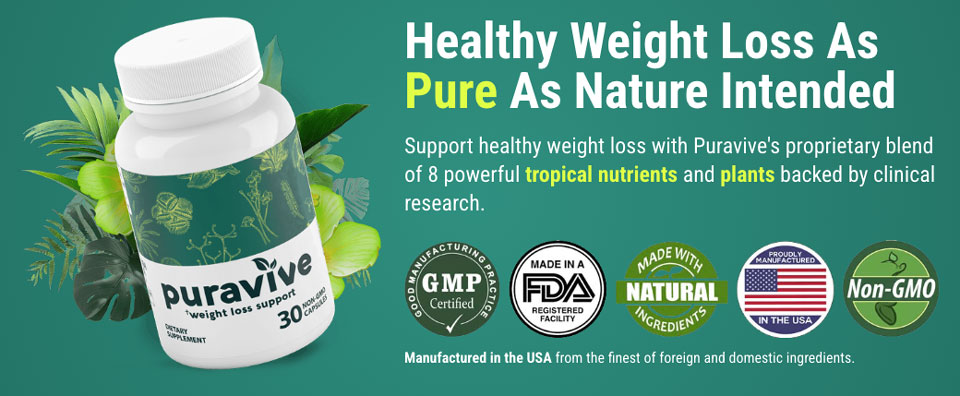Table of Contents
The Role of Vitamins in Senior Weight Loss
Vitamins play a crucial role in many bodily functions, including metabolism, which is the process by which your body converts food into energy. While vitamins alone won't lead to weight loss, they can help support a healthy weight-loss journey when combined with a balanced diet and regular exercise.
For example, certain vitamins can help support a healthy metabolism and provide more energy, which can aid in weight loss efforts. Other vitamins and minerals can support bone health, prevent high blood pressure, and reduce inflammation, which can positively impact overall health and wellness.
However, it's important to remember that vitamins should never be used as a replacement for a healthy and balanced diet.
Eating various nutrient-dense foods, including fruits, vegetables, lean proteins, and whole grains, is key to supporting overall health and weight loss goals.
Additionally, regular exercises, such as cardio and strength training, can help support a healthy metabolism and aid in weight loss efforts.
If you're considering taking vitamin supplements to support your weight loss journey, it's always a good idea to talk to your doctor or a registered dietitian first. Since there are many weight loss supplements, professionals can help you determine which supplements may be appropriate for your individual needs.
Top Vitamins for Senior Weight Loss
When it comes to weight loss, a variety of vitamins can help support your efforts. Here are some of the top vitamins to consider:
Vitamin D
This vitamin is important for many functions in the body, including bone health and immune function. But did you know that it may also play a role in weight loss? Notably, vitamin D deficiency may lead to overweight and obese adults.
Also, vitamin D is essential as it helps your body absorb calcium and increase lean muscle mass. This helps maintain healthy bones and enhance athletic performance.
Vitamin C
Not only is vitamin C important for immune function, but it may also help you lose weight. This is because it's involved in the production of carnitine, a compound that helps the body burn fat for energy.
Additionally, adequate vitamin C levels are an antioxidant that can help protect cells from damage and may help reduce inflammation, which can be beneficial for weight loss.
Vitamin E
Like vitamin C, vitamin E is an antioxidant that can help protect cells from damage. It may also promote weight loss by reducing inflammation and improving insulin sensitivity.
Insulin is a hormone that helps regulate blood sugar levels, and when it's not working properly, it can lead to weight gain.
Vitamin B
Several B vitamins may be beneficial for senior weight loss, including B1, B2, B3, and B6. These vitamins are involved in energy metabolism, which means they help the body convert food into energy.
They may also help elderly people reduce inflammation and improve insulin sensitivity. B12 may be particularly helpful for weight loss, as it's involved in body fat and protein metabolism.
Dietary Supplements for Senior Weight Loss
When it comes to weight loss, seniors turn to dietary supplements as a way to support their efforts. Keep in mind that supplements lost significantly impact weight loss.
Here are some common supplements to consider:
Iron Supplements
Iron is an essential mineral supplement important for many bodily functions; it carries oxygen in the red blood cells. While it's not directly linked to weight loss, iron deficiency can lead to fatigue and decreased blood glucose levels, which may make it harder to stick to healthy habits such as routine exercise.
If you're not getting enough iron through your diet alone, a supplement may be helpful.
Calcium
It’s important for bone health but may also aid weight loss. Calcium supplements may help with weight loss by reducing the amount of fat absorbed by the body.
While more research is needed to understand the relationship between calcium and weight loss fully, it's still a good idea to ensure you're getting enough of this important nutrient.
Fiber
Dietary fiber is a carbohydrate that the body can't digest. It's important for digestive health and may also help with weight loss by promoting feelings of fullness and reducing appetite.
It also ensures that you have the appropriate body mass index. So, if you're not getting enough fiber through your diet alone, a supplement may be helpful.
Green Tea Extracts
Green tea extract is a supplement derived from green tea leaves. It contains a compound called EGCG, which has been shown to boost metabolism and promote fat burning.
While more research is needed to fully understand the effects of green tea extract on weight loss, it may be worth considering as part of a healthy weight loss plan.
Magnesium
This essential mineral is important for many bodily functions, including energy production and muscle function. While magnesium is not directly linked to weight loss, a deficiency can lead to fatigue and decreased energy levels, which may make it harder to stick to a healthy diet and exercise routine.
Taking magnesium supplements may be helpful if you're not getting enough magnesium through your diet.
It's important to note that while these weight loss supplements may be helpful for weight loss, they should not be relied upon as the sole solution. Eating a balanced diet that includes a variety of nutrient-dense foods is still the best way to support your weight loss goals.
Additionally, regular exercise and stress management are important lifestyle factors that can support weight loss.
How to Incorporate Vitamins into a Healthy Weight Loss Plan
Incorporating vitamins into your weight loss plan is a great way to support your overall health and wellness. Here are some tips to help you get started:
Eat a Balanced Diet
A healthy, balanced diet is the best way to get adequate vitamins for your body's needs. Focus on eating a variety of nutrient-dense foods, such as fruits, vegetables, whole grains, lean proteins, and healthy fats.
This will help ensure that you're getting a wide range of vitamins and minerals to support your weight loss goals.
Consider a Multivitamin
A multivitamin may be helpful if you're not getting adequate vitamins through your diet. Look for a high-quality supplement that contains various vitamins and minerals, and take it as directed.
Get Some Sunshine
Vitamin D is a vital nutrient that can be synthesized by the body when the skin is exposed to sunlight. Try to spend some time outside daily to help boost your vitamin D levels.
Drink Green Tea
As mentioned earlier, green tea supplements may be helpful for weight loss in seniors. But you don't have to take a supplement to reap the benefits.
Drinking green tea regularly can also help support your weight loss goals.
Talk to Your Healthcare Provider
If you're considering taking a vitamin supplement, talking to your healthcare provider first is important. They can help you determine if a supplement is right for you and recommend a safe and effective dose.
How can Seniors Individualize Vitamin and Nutrient Intake for Weight Loss?
One of the key factors that can impact the effectiveness of vitamins for weight loss in seniors is individual variation in nutrient needs. While certain vitamins may be helpful for one person, they may not have the same effect on another.
This is why personalized vitamin and nutrient intake is essential for optimizing weight loss efforts.
One important aspect of personalized vitamin and nutrient intake is identifying and addressing individual nutrient deficiencies. This can be done through blood tests or nutrient intake assessments, which can help identify areas where a person may be lacking in certain vitamins or minerals.
For example, a person with low vitamin D levels may have a harder time losing weight, as enough vitamin D levels play a crucial role in regulating metabolism and insulin sensitivity.
Once nutrient deficiencies have been identified, personalized supplementation or dietary changes can be made to address these deficiencies. This can help optimize weight loss efforts by providing the body with the nutrients it needs to function properly.
In addition to addressing individual nutrient deficiencies, personalized vitamin intake can promote overall health and well-being. This is because vitamins and minerals play a crucial role in a wide range of bodily functions, from immune function to bone health to energy production.
To illustrate the importance of personalized vitamin and nutrient intake, consider the following data table:
Recent Articles



















